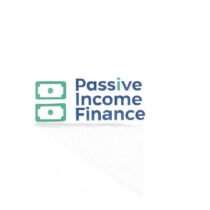Budgeting for Beginners: Your Ultimate Guide to Financial Freedom
Are you ready to take control of your finances? Budgeting is the first step towards financial stability and independence. Whether you’re looking to save for a vacation, pay off debt, or build an emergency fund, a budget is essential. In this comprehensive guide, we’ll break down the basics of budgeting for beginners, provide actionable steps, and share tools that can help you succeed.
Introduction
Budgeting is not just about tracking your expenses; it’s about understanding your financial habits and making informed decisions. By learning how to budget effectively, you can create a roadmap to achieve your financial goals. Let’s dive into the world of budgeting!
Why It Matters
Understanding the importance of budgeting can motivate you to stick with it. Here’s why budgeting matters:
- Financial Awareness: Knowing where your money goes helps you identify wasteful spending.
- Goal Achievement: A budget helps you allocate funds towards your financial goals.
- Debt Management: Budgeting is crucial for paying off debts and avoiding future financial crises.
- Stress Reduction: Having a plan reduces anxiety related to financial uncertainties.
Step-by-Step Guide
1. Assess Your Income
Begin by calculating your total monthly income, including salary, side hustles, and any passive income. This will be the foundation of your budget.
2. Track Your Expenses
Monitor all your expenses for a month. Categorize them into fixed (rent, utilities) and variable (entertainment, dining out) expenses.
3. Set Your Financial Goals
Define short-term and long-term financial goals. Examples include saving for retirement, a home, or a vacation.
4. Create Your Budget
Using the data from your income and expenses, create a budget that allocates money to each category. Make sure to include savings!
5. Review and Adjust Monthly
Every month, review your budget and adjust as necessary. Life changes, and so should your budget.
6. Stick to It
Discipline is key. Use tools and apps to help you stay on track.
7. Celebrate Your Successes
As you meet your budgeting goals, reward yourself! This will keep you motivated.
Tools
Here are some budgeting tools that can help you manage your finances:
- Mint: A free budgeting tool that tracks expenses and provides insights.
- YNAB (You Need A Budget): A paid tool that focuses on proactive budgeting.
- Google Sheets: A customizable option for those who prefer manual tracking.
Case Study
Let’s take a look at a real-world example of someone who successfully implemented a budget. Meet Sarah, a 28-year-old marketing professional. After graduating, Sarah found herself overwhelmed by student loans and credit card debt totaling $15,000. Her monthly income was $3,000.
By following a structured budget, Sarah tracked her spending and identified that she was spending $500 monthly on dining out and entertainment. She decided to cut this down to $200 and redirected the $300 savings towards her debt. Within two years, Sarah managed to pay off her debts completely and even saved $5,000 for a vacation. Her disciplined approach to budgeting transformed her financial situation!
Scaling Your Hustle
Once you’ve mastered budgeting, it’s time to scale your financial efforts. Here are some actionable steps to increase your income:
1. Explore Side Hustles
- Freelancing: Utilize platforms like Fiverr to offer services such as graphic design or writing. Starting at $5/hour, it’s an easy way to earn extra cash.
- Online Tutoring: Share your knowledge in subjects you excel at through platforms like Chegg or VIPKid.
2. Automate Your Savings
Set up automatic transfers to your savings account each month. Use tools like Google Sheets to track your savings goals and automate reminders.
3. Invest Wisely
- Start Small: Begin investing with platforms like Robinhood that allow commission-free trading.
- Diversify: Consider investing in ETFs or index funds for reduced risk.
4. Utilize Free Resources
Many online resources offer free courses on personal finance and investing. Sites like Coursera and Khan Academy can provide valuable knowledge without costs.
5. Network and Collaborate
Join forums or communities related to your interests. Networking can lead to collaborative opportunities that boost your income.
6. Keep Learning
Stay updated on personal finance trends. Topics like ‘best investments 2025’ and ‘passive income strategies’ are great for expanding your knowledge base.
7. Adjust as You Grow
As your income increases, re-evaluate your budget to accommodate new financial goals. Consistently scaling your hustle will support your budgeting efforts!
Conclusion
Budgeting is a powerful tool that can lead to financial freedom. By following the steps outlined in this guide, utilizing the right tools, and being proactive about increasing your income, you can achieve your financial goals. Remember, it’s not just about saving money; it’s about making your money work for you. Start today and take the first step towards a financially stable future. For more insights, check out our posts on Smart Investing Strategies for 2025 and Side Hustles That Pay.
Ready to take charge of your finances? Start budgeting today!
Boost your earnings with Robinhood Free (start investing with no fees!) or Fiverr Free (earn extra with freelance gigs!).
